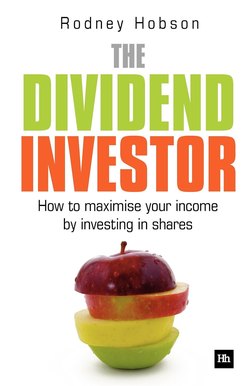Читать книгу The Dividend Investor - Rodney Hobson - Страница 7
На сайте Литреса книга снята с продажи.
Why dividends?
ОглавлениеThere are two major reasons for investing:
1 to produce income
2 to store wealth for some time in the future.
It is very important to recognise the remarkable power of dividends. Newspapers feed the public with daily doses of how share prices rise and fall, often commenting on how billions have been added to or wiped off the stock market or how shares in some company or another have gained millions in a single day because of one item of good news.
It is easy to be seduced by these dazzling figures that foster the notion that the stock market is all about making a fast buck in a gambler’s paradise, especially in a bull market when all eyes are on rising shares prices.
In fact, the real money is made through solid investments that pay regular, rising dividends. The greater part of total returns for share investors over time will come from dividends, not capital gains. And when markets are falling, your only gains are likely to come from dividends.
To demonstrate the importance of dividends we can look at figures produced by the Barclays Equity Gilts Study, which showed that £1,000 invested in shares at the end of the Second World War would have been worth £57,210 by the end of 2009.
However, had we reinvested the dividends our pot would have ballooned to a massive £924,600.
So unless you are a very short-term trader, you should be investing for dividends as part of any strategy for capital growth. Companies paying gradually improving dividends are the ones that will see their share price rise over time and the income from dividends will help to offset any capital losses you may suffer.
Even short-term investors should consider running a separate long-term investment portfolio as a back-up. Therefore almost every investor should be a dividend investor.
It is possible to invest by putting your money into a fund such as an investment company or trust. You can find out how to do this in chapter 24. However, you are abrogating responsibility for your finances to a fund manager who cannot possibly know what you want from your investments and what risks you are prepared to take.
The performance of individual funds can vary enormously from year to year. The one constant is that the manager has to be paid out of your money. There is absolutely no reason why you cannot make sensible investment choices yourself, retaining control of your own destiny. Even if you do not perform quite as well as the fund manager, you will come out ahead because you are not paying the fund’s fees.
With the help of this book you can compete easily with the City professionals, retaining the flexibility to invest as, when, and where you choose.
